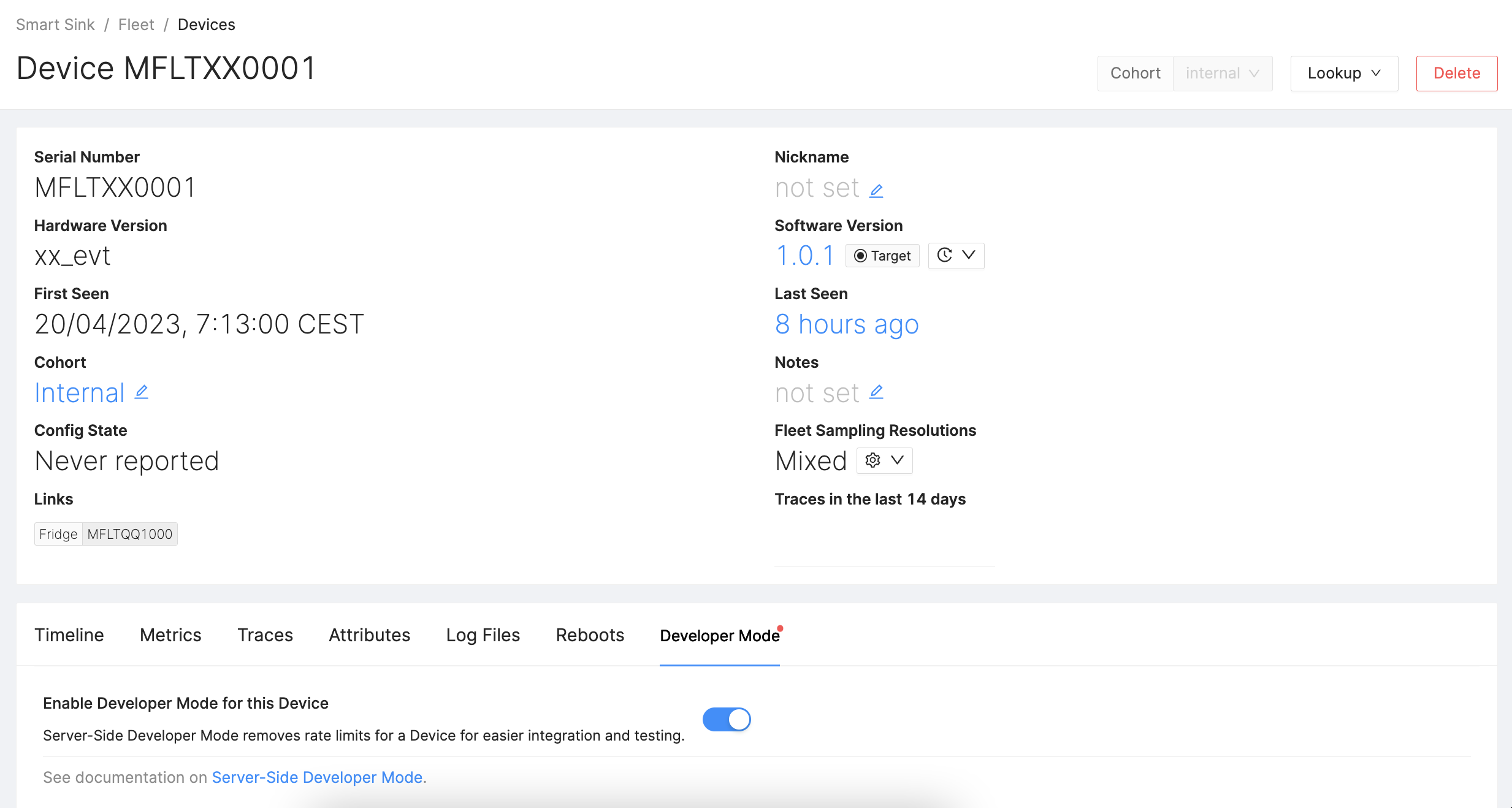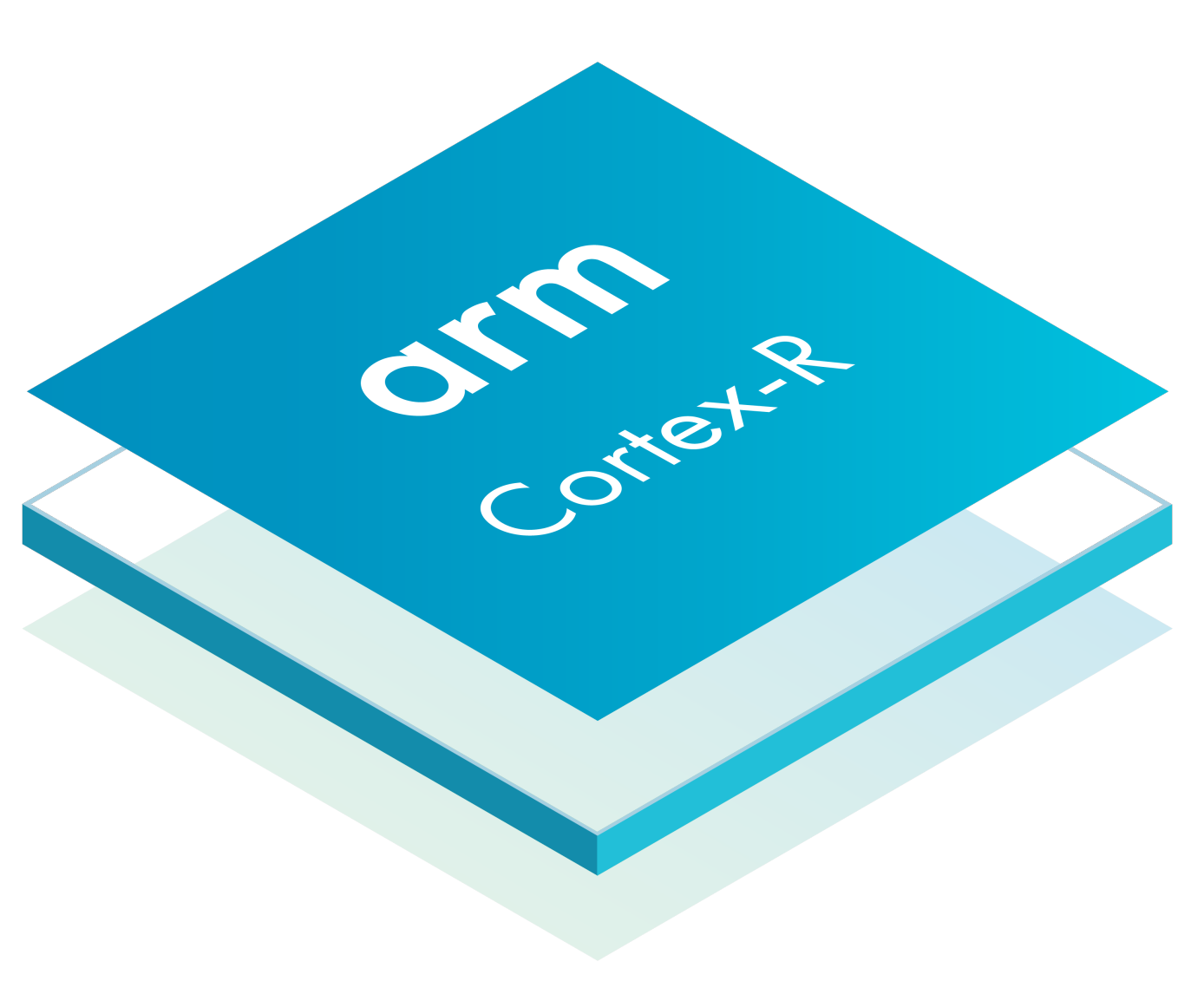April 2023
Server-Side Support for Developer Mode
Developer Mode now allows you to temporarily remove any server-side rate limiting on devices from within the device view. This new functionality gives you full control over your integration/testing process with no imposed requirement to pause or prematurely switch between devices because a rate limit has been hit.
This will make it easier to integrate, configure and test new Memfault features and accelerate the testing, debugging and feature development processes of your own products using Memfault.

Developer Mode is activated on a per-device basis and will remove all rate limiting for uploads from the device to Memfault of coredumps, bug reports, Heartbeats and other data. This Server-Side Developer Mode functionality is an extension of the existing device-side Developer Mode (Android, Linux) and they can be used in tandem or independently.
Memfault Support for Cortex-R
Memfault has expanded its coverage of Arm-based devices adding support for coredumps on Arm Cortex-R. This allows customers to realize the full value of the Memfault monitoring, debugging and update capabilities on more of their Arm-based devices.

For customers already familiar with integrating the Memfault Firmware SDK on Cortex-M devices, the process for Cortex-R-based devices is very similar, with the only minor difference in the integration of the exception/interrupt handlers on Cortex-R. For more information on how to complete the integration, please review our Arm Cortex-R integration guide.
General
- Added: Server-Side support for Developer Mode to bypass rate limits during integration
- Improved: First/Last seen values in Device Search page links to Device Timeline
- Improved: Performance of Issue Search page and Issue Distribution Charts under Issue Details
- Fixed: Problems accessing project's resources when a user is assigned multiple roles via Memfault's Access Control
- Fixed: Users of projects created by Memfault support staff can't access project resources
- Fixed: Missing "Download" option for some Qualcomm traces
MCU
- Added: Support for casting to pointer types under Trace Details → Globals/Statics
- SDK versions
0.42.1,
0.43.0
and
0.43.1
were released. Some highlights:
- Added: Coredump support for Cortex-R chips (ARMv7-R)
- Added: A QEMU-based FreeRTOS example project
- Added: (Zephyr port) Support for showing high watermark information in the Memfault coredump analysis view without capturing the full stack for a thread
- Changed: The
z_NmiHandlerSetfunction is renamed for the upcoming Zephyr 3.4. Thanks @mbolivar-nordic for the patch!
Android
- Fixed: HRT storage metrics not displayed correctly on Device Timeline
- SDK versions
4.5.1
and
4.6.0
were released. Some highlights:
- Added: Support for remote configuration of storage limits for UsageReporter/Bort cache folders.
- Added: Support for resetting a Project Key that's changed at runtime.
- Improved: Sending Config State again when it's not synced with backend.
- Fixed: A potential issue when SDK settings change, they are not applied immediately, and fleet sampling configuration may not be updated.
- Changed: Removed (previously deprecated) individual file upload support: MAR is now the only supported upload mechanism.
- Changed: When using Client-Server mode, limit the age and retry count of files waiting to be transferred to the Server device in UsageReporter.
Linux
- SDK versions
1.3.2
and
1.4.0
were released. Some highlights:
- Added:
logs.compression_leveloption to set the logs compression level - Improved: Log collection is now production ready
- Improved: Taking system limits into consideration (amount of disk space and inodes remaining on disk) when writing logs, storing coredumps and when cleaning the MAR staging area
- Fixed: Bug causing coredump-handler to not capture coredumps in Developer Mode
- Fixed: Build error when logging is disabled
- Fixed:
memfaultdandmemfaultctlnot reporting their version number - Changed: On device rate limit for logging (defaults to 500 lines per minute - see max_lines_per_minute)
- Changed: Dependencies to swupdate, collectd and fluent-bit are added by the
memfaultdrecipe and only when the corresponding plugins are enabled
- Added:
CLI
- We did not publish a new version of the memfault-cli in April.